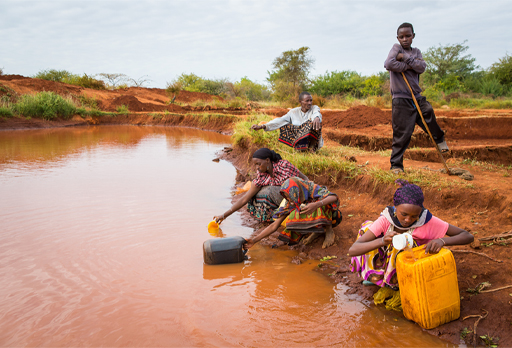1.3 Economic influences
Living in chronic poverty often has a negative impact on children’s mental health and wellbeing. In many parts of the world, especially in low-income countries, children are often relied on to make a significant material contribution to the family in ways that children in middle- and high-income countries are not expected to. As you will explore later in this session, children as young as seven may become part of the paid workforce in order to earn money to ensure their family's survival.
In countries where water is scarce, it is often the responsibility of young girls to collect the water needed for cooking and drinking from a water hole, which often requires them to walk long distances every day. This in turn negatively impacts on their ability to get an education, because the priority is obtaining the water necessary for their family. The need for children to contribute in these ways is essential for the health and existence of the family; however, it often comes at a cost to children’s mental health and wellbeing.

